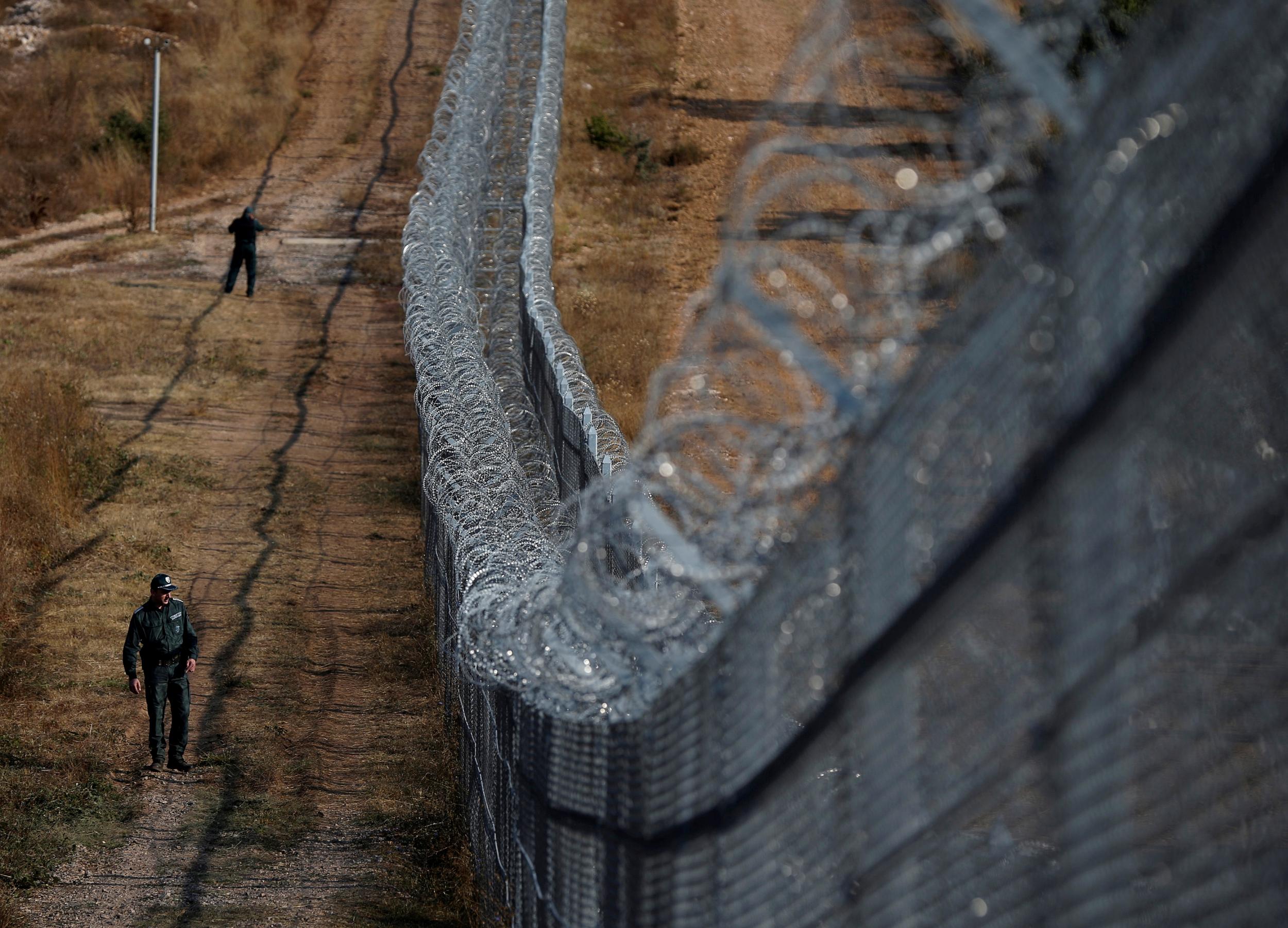Your support helps us to tell the story
This election is still a dead heat, according to most polls. In a fight with such wafer-thin margins, we need reporters on the ground talking to the people Trump and Harris are courting. Your support allows us to keep sending journalists to the story.
The Independent is trusted by 27 million Americans from across the entire political spectrum every month. Unlike many other quality news outlets, we choose not to lock you out of our reporting and analysis with paywalls. But quality journalism must still be paid for.
Help us keep bring these critical stories to light. Your support makes all the difference.
European Union states have built over 1,000km of border walls since the fall of the Berlin Wall in 1989, a new study into Fortress Europe has found.
Migration researchers have quantified the continent’s anti-immigrant infrastructure and found that the EU has gone from just two walls in the 1990s to 15 by 2017.
Ten out of 28 member states stretching from Spain to Latvia have now built such border walls, with a sharp increase during the 2015 migration panic, when seven new barriers were erected.
Despite celebrations this year that the Berlin Wall had now been down for longer than it was ever up, Europe has now completed the equivalent length of six Berlin walls during the same period. The barriers are mostly focused on keeping out undocumented migrants and would-be refugees.
The erection of the barriers has also coincided with the rise of xenophobic parties across the continent, with 10 out of 28 seeing such parties win more than half a million votes in elections since 2010.
“Europe’s own history shows that building walls to resolve political or social issues comes at an unacceptable cost for liberty and human rights,” Nick Buxton, researcher at the Transnational Institute and editor of the report said.
“Ultimately it will also harm those who build them as it creates a fortress that no one wants to live in. Rather than building walls, Europe should be investing in stopping the wars and poverty that fuels migration.”
Tens of thousands of people have died trying to migrate into Europe, with one estimate from June this year putting the figure at over 34,000 since the EU’s foundation in 1993. A total of 3,915 fatalities were recorded in 2017.
The report also looked at eight EU maritime rescue operations launched by the bloc, seven of which were carried out specifically by the EU’s border agency Frontex.
The researchers found that none of the operations, all conducted in the Mediterranean, had the rescue of people as their principal goal – with all of them focused on “eliminating criminality in border areas and slowing down the arrival of displaced peoples”.
Just one, Operation Mare Nostrum, which was carried out by the Italian government, included humanitarian organisations in its fleets. It has since been scrapped and replaced by Frontex’s Operation Triton, which has a smaller budget.
“These measures lead to refugees and displaced peoples being treated like criminals,” Ainhoa Ruiz Benedicto, researcher for Delàs Center and co-author of the report said.
At the June European Council, EU leaders were accused by NGOs of “deliberately condemning vulnerable people to be trapped in Libya, or die at sea”, after they backed the stance of Italy’s populist government and condemned rescue boats operating in the sea.
Subscribe to Independent Premium to bookmark this article
Want to bookmark your favourite articles and stories to read or reference later? Start your Independent Premium subscription today.

Join our commenting forum
Join thought-provoking conversations, follow other Independent readers and see their replies
Comments